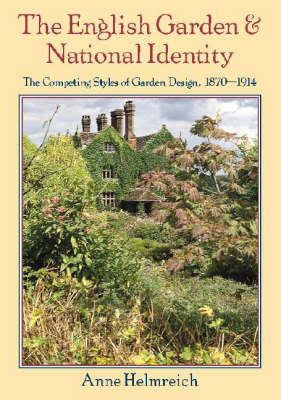Modern Architecture and Cultural Identity
1 total work
This book examines the fierce debate on the styles and forms of garden design that took place in England c. 1870-1914. Focusing on the wild garden, the cottage garden, the formal garden and the synthesis of the formal and natural styles, Anne Helmreich argues that design principles and debates between designers including William Robinson, Reginald Blomfield, Gertrude Jekyll, and Edwin Lutyens, were indelibly shaped by the quest for a powerful English national identity. She demonstrates how 'Englishness' was purportedly expressed through the leading styles of garden design and why the garden was promoted as a symbol of national identity. A wide range of cultural practices and institutions, from garden treatises, popular journals, historic preservation organizations, art exhibitions, and two world's fairs, are investigated to reveal how the garden, as a physical artifact and as an idea, circulated widely to produce a unifying national image.
